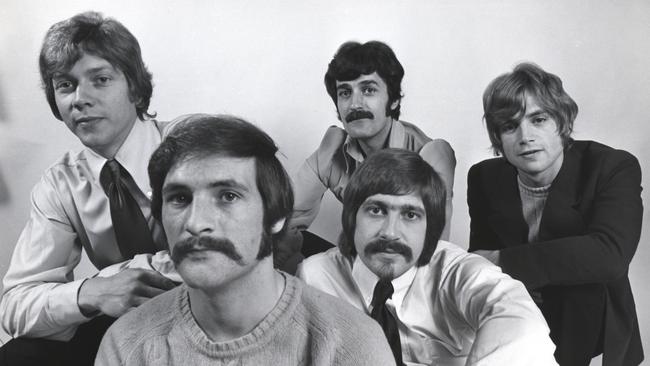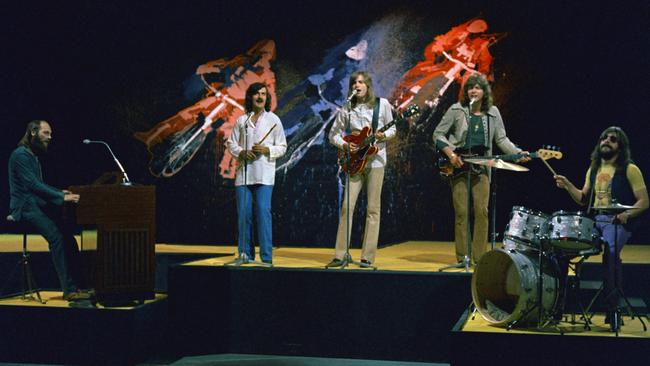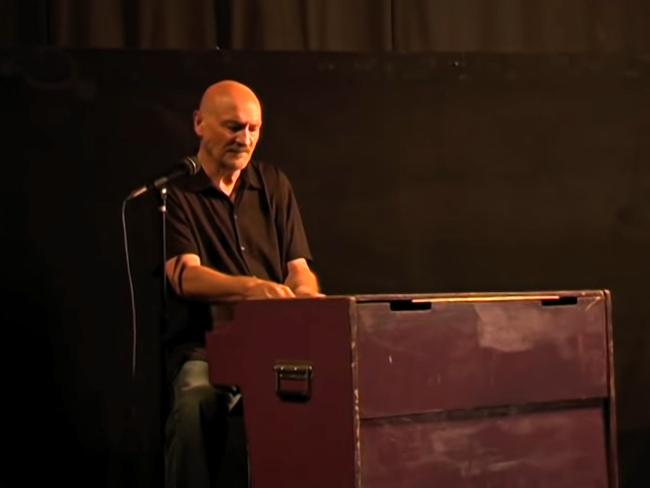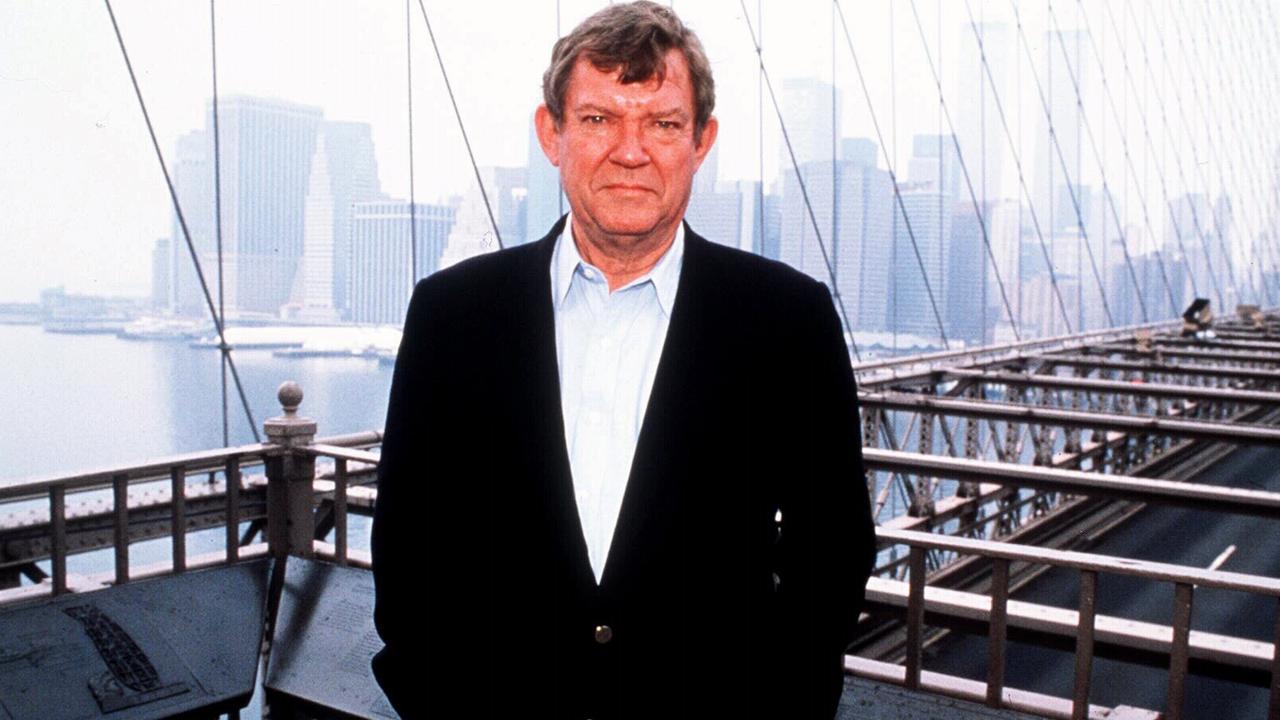The Moody Blues’ Mike Pinder changed the course of music with a mellotron
Mike Pinder was was innovative keyboardist and founding member of the Moody Blues and wrote many of the group’s most progressive and interesting songs.

A founding member of the Moody Blues, Mike Pinder played keyboards with the group during its glory years, from the early days as a raucous R’n’B combo through the prog-rock era when his inventive use of synthesisers came to define the group’s symphonic sound.
The versatility of his musicianship was impressive. He played the memorable, bluesy descending piano chord sequence on 1965 No.1 hit Go Now. Then he pioneered the use of the mellotron, an early prototype synthesiser he helped to develop in his time as an engineer at Streetly Electronics, the firm that manufactured the instrument.
The mellotron became central to the Moody Blues’ lush, orchestrated sound on hits such as Nights in White Satin and on albums such as Days of Future Passed, In Search of the Lost Chord and On the Threshold of a Dream, all now regarded as classics, which made the group one of the biggest-selling of the prog-rock era. Pinder’s proselytising passion for the instrument also led him to introduce the mellotron to John Lennon, who used it on the Beatles’ Strawberry Fields Forever.
In addition to the mellotron, organ and piano, he variously played harpsichord, Moog synthesiser, Indian tablas and guitars, and was the group’s main arranger.
As the scope of the Moody Blues’ musical ambition expanded in the late 1960s, Pinder came into his own as a songwriter, often in a quasi-mystical vein. A typical example was a song he wrote on the band’s 1970 album, A Question of Balance, the title of which posed the age-old philosophical question How is it (We are Here).
But some thought the Moody Blues had crossed the narrow dividing line between progressive and pretentious, and which led to them being sniggeringly described in some quarters as “the Pseudy Blues”.
Pinder was blessed with an innate melodic pop sensibility. Two of his compositions, So Deep Within You and A Simple Game, were covered by the Four Tops in the early ’70s. The latter composition also won him an Ivor Novello songwriting award.
Pinder’s deep sonorous voice proved to be the perfect vehicle for the spoken word poetry that was a trademark of the group’s early albums.
Pinder recited the poems that bookended the 1967 album Days of Future Passed and on subsequent Moody Blues albums, including The Word on In Search of The Lost Chord (1968); In The Beginning and The Dream from On The Threshold of a Dream (1969), and; The Balance from A Question of Balance (1970).

He left the group in the mid-1970s and was replaced by Patrick Moraz. Pinder moved to California, where his “boffin” tendencies led to a job as a consultant at the Atari computer corporation. After many years out of the spotlight, he returned to recording in the 1990s but although the Moody Blues continued to record and perform well into the 21st century, he never rejoined, apart from a brief collaboration on the 1978 album, Octave.
Aged 18 he formed El Riot and the Rebels, a raw rock’n’roll combo that also included future Moody Blues members Ray Thomas and John Lodge. They supported the Beatles at a show outside Birmingham in 1963. After a brief spell in the army, he joined Thomas in the Krew Kats, who followed the Beatles to Hamburg and played the same cellar bars at which the band had cut its teeth. When the group broke up after two months in the German city, Pinder and Thomas were left stranded without cash. They spent seven days walking and hitching rides on the 670km journey to Ostend in Belgium, where they borrowed the ferry crossing fee from the British consulate.
Pinder took a job with Streetly Electronics, which was already developing the mellotron.
In 1964 Pinder teamed up again with Thomas and after the recruitment of singer and guitarist Denny Laine and drummer Graeme Edge, they formed the Moody Blues. They found spectacular success and toured with the Beatles.
Things stalled and the lineup changed; at Pinder’s instigation, singer and guitarist Justin Hayward joined in time for the psychedelic era and a dramatic change of musical direction. Pinder obtained a demonstration mellotron that he modified, giving him the capacity to create the sound of a full string orchestra. Pinder also developed an innovative way of playing the instrument, creating a woozy, wave-like effect, which proved perfect for the times.
The off-kilter symphonic sound became the trademark of the classic series of albums the Moody Blues recorded between 1967 and 1972, almost single-handedly creating a new genre of orchestrated, progressive rock music. It was launched by the success of Nights in White Satin, a romantic ballad sung by Hayward. The song was drawn from Days of Future Passed, the initial concept of which was to record a rock version of Dvorak’s Ninth Symphony. In the event, the group kept the symphonic concept but instead created an album built around a day in the life of an “everyman”, with the music reflecting different periods of the day. There followed a string of big-selling albums and by the time of 1971’s Every Good Boy Deserves Favour, Pinder had replaced the mellotron with a chamberlin, which created a similar sound but which was more reliable.

Seventh Sojourn was recorded at Pinder’s home studio and included two of his finest compositions – Lost in a Lost World and When You’re a Free Man – the latter song dedicated to the LSD guru Timothy Leary. The band then went on a long hiatus.
Pinder moved to California, where he recorded a solo album. When the Moody Blues reconvened to record Octave, he contributed one song and played synthesiser on a handful of others but, after personality clashes with other members, most notably Edge, he walked out.
He re-emerged in 1994 with the solo album, Among the Stars, on his own One Step label. It was followed by A Planet with One Mind (1995), on which he read children’s stories from around the world, accompanied by his own musical backing.
Following the deaths of Thomas in 2018, Edge in 2021 and Laine last December, Pinder was the final surviving founding member of the band. In 2018 he was inducted into the Rock and Roll Hall of Fame as a member of the Moody Blues.
The Times


